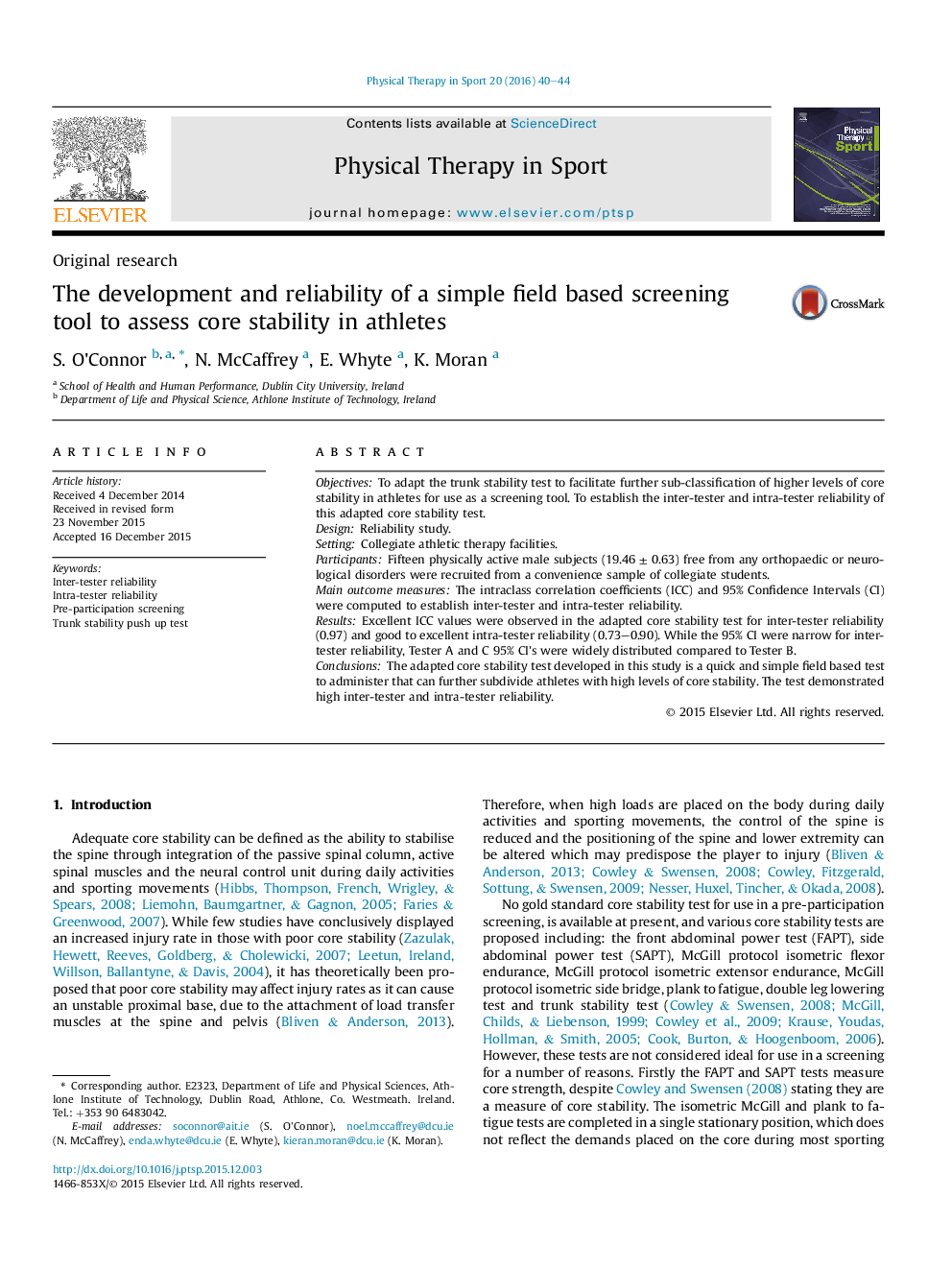| Article ID | Journal | Published Year | Pages | File Type |
|---|---|---|---|---|
| 2709735 | Physical Therapy in Sport | 2016 | 5 Pages |
•The adapted core stability test is a quick and simple field based screening test.•The test aims to further subdivide athletes with high levels of core stability.•Excellent inter-tester reliability with a high ICC and narrow 95% CI was noted.•Good to excellent intra-tester reliability with a wide 95% CI was found.•Further familiarisation sessions prior to testing may be required.
ObjectivesTo adapt the trunk stability test to facilitate further sub-classification of higher levels of core stability in athletes for use as a screening tool. To establish the inter-tester and intra-tester reliability of this adapted core stability test.DesignReliability study.SettingCollegiate athletic therapy facilities.ParticipantsFifteen physically active male subjects (19.46 ± 0.63) free from any orthopaedic or neurological disorders were recruited from a convenience sample of collegiate students.Main outcome measuresThe intraclass correlation coefficients (ICC) and 95% Confidence Intervals (CI) were computed to establish inter-tester and intra-tester reliability.ResultsExcellent ICC values were observed in the adapted core stability test for inter-tester reliability (0.97) and good to excellent intra-tester reliability (0.73–0.90). While the 95% CI were narrow for inter-tester reliability, Tester A and C 95% CI's were widely distributed compared to Tester B.ConclusionsThe adapted core stability test developed in this study is a quick and simple field based test to administer that can further subdivide athletes with high levels of core stability. The test demonstrated high inter-tester and intra-tester reliability.
